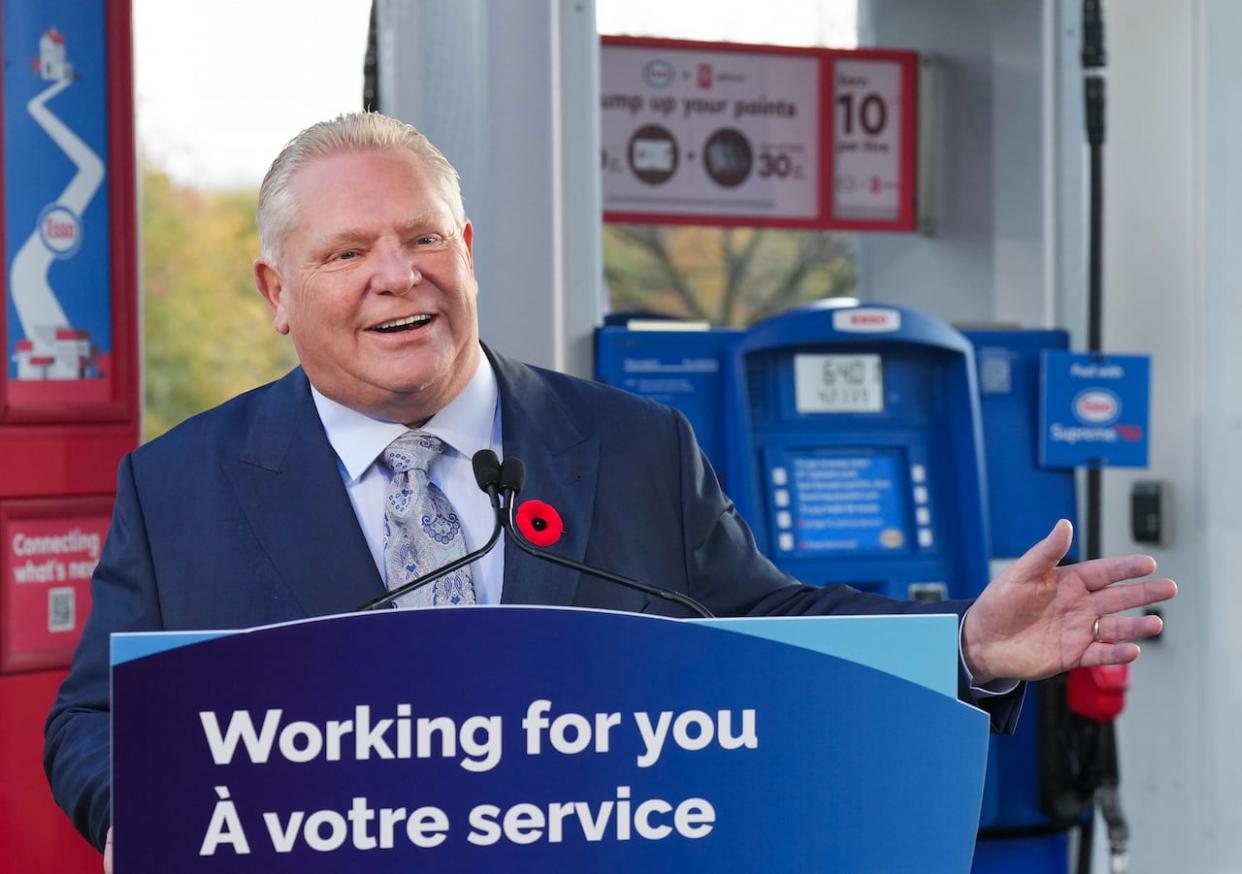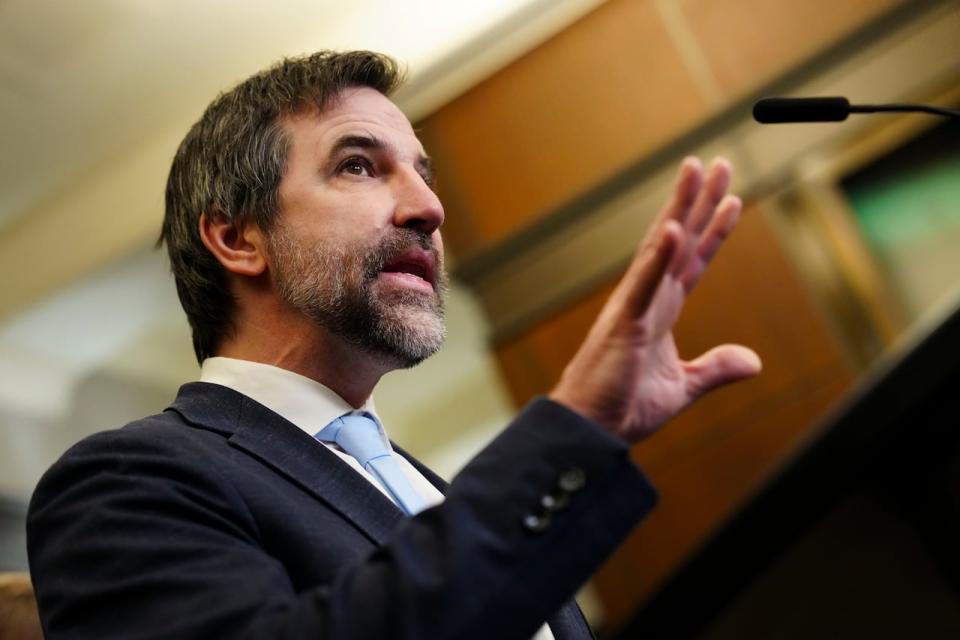Ontario extending gas tax cut to end of year

- Oops!Something went wrong.Please try again later.
Ontario is again extending a temporary tax cut intended to help drivers save money at gas pumps.
The cut, which first went into effect in July 2022, reduces the gasoline tax by 5.7 cents per litre and the diesel fuel tax by 5.3 cents per litre. It was scheduled to expire on June 30.
Premier Doug Ford said Monday the government will keep the tax break in place until the end of the year.
"It's never been more important to keep costs down," Ford said at a press conference in Mississauga. "We're on a relentless mission to save people money."
The government will introduce legislation to extend the gas tax cut until Dec. 31, 2024, through its 2024 budget, which will be tabled on Tuesday, March 26.
The province estimates these tax breaks have saved households an annual average of $320 since they were introduced.
"Our government really knows that high inflation and high interest rates are putting immense pressure on the pocketbooks of Ontarians," Finance Minister Peter Bethlenfalvy said.
"That's why we acted early to keep costs down and protect people and businesses from the rising cost of everything."
Ford rails against planned carbon tax increase
Ford first promised to lower gas prices by 10 cents per litre during the 2018 election campaign.
At the time, Ontario's Progressive Conservative Party said that would be done by scrapping the province's cap-and-trade system and shrinking the gas tax.
The government did end cap-and-trade soon after the 2018 election, meant to lower prices by 4.3 cents a litre, but that prompted the federal carbon tax backstop to kick in, negating those savings.
The carbon tax is meant to act as a financial incentive for people and businesses to change their behaviour to burn less fossil fuels and transition to greener forms of energy. Ford's government tried fighting the levy in court, but lost.

A spokesperson for Environment Minister Steven Guilbeault said eight out of 10 Canadians receive more money back through a carbon tax rebate than they pay. (Sean Kilpatrick/The Canadian Press)
Also on Monday, Ford called on the federal government to scrap an increase to the carbon tax planned for next week.
"This tax is costing hardworking people more money to drive to work or drop off the kids to hockey practice," Ford said. "I urge you to immediately scrap next week's tax hike."
The carbon tax, which came into effect at $20 per tonne in 2019, has steadily steadily climbed in the years since and is scheduled to rise from $65 per tonne to $80 on April 1.
The April 1 increase will add about three cents more per litre of gasoline.
A spokesperson for Environment Minister Steven Guilbeault pushed back against Ford's argugment that the carbon tax leads to increased costs for Canadians.
"These bogus claims have been debunked by many experts, including the Bank of Canada and the [Parliamentary budget officer]," Kaitlin Power wrote in an email.
The carbon rebate ensures eight out of 10 people receive more money back than they pay, with lower-income families benefiting the most, according to the statement.
"Conservative leaders like [Pierre] Poilievre and Ford should be honest to Canadians and come clean about their plans to help their rich friends pollute for free ... Poilievre and Ford want to pass the bill along to future generations," the spokesperson said.

